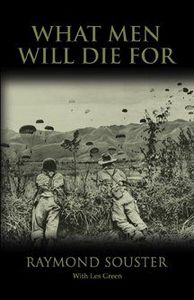Raymond Holmes Souster (born 15 January 1921) is a Canadian poet.
Born in Toronto, Ontario, he grew up and continues to live in the Humberside area of the city. Souster joined the Canadian Imperial Bank of Commerce in 1939 and, apart from his service in World War II, worked there until his retirement in 1985. With Louis Dudek and Irving Layton he collaborated on CONTACT magazine and Contact Press. Souster helped to establish the League of Canadian Poets and, from 1967 to 1972, served as the first president of the organization.
Souster was born in Toronto in 1921 to lower-middle-class parents; his father, Austin Souster, was a clerk in the Canadian Bank of Commerce; his mother was the former Norma Baker. As a child Souster was an outstanding pitcher in bantam and juvenile baseball leagues, but on graduation from high school he took a clerking job with the Imperial Bank of Canada (later the Canadian Imperial Bank of Commerce) where he worked for forty-five years. In 1941 he enlisted in the Royal Canadian Air Force, hoping for both pilot training and overseas service. However, because of medical limitations, he was trained as ground crew and posted to Nova Scotia and later New Brunswick. A posting to Europe took him to Yorkshire for the last days of the war.
Five years in the making, this narrative poem of 13,000 lines explores the epic siege of Dien Bien Phu, in all its gallantry, horror and stupidity. It is aimed at the average reader, but is also of interest to poetry fans and modern history buffs, and perhaps even professional historians.
In What Men Will Die For the author has made use of a multi-voiced poetic technique like that found in his Jubilee of Death (Oberon 1984), a retelling of the ill-fated Dieppe raid. In this new work, the voices that we listen to, rendered in English but mostly drawn from French sources, are intended to give a final impression of the supreme uselessness and stupidity of war. Here you will meet, speaking for the side of the Viet Minh (abbreviated from "League for the Independence of Vietnam"), that lifetime Communist revolutionary leader, Ho Chi Minh, his one time university professor colleague General Vo Nguyen Giap, academic historian turned military technician, and chief medical advisor to Giap, Professor Ton That Tung. Speaking for the French, will be noteworthy military figures such as generals de Tassigny, Salan, Navarre, Gilles, Cogny, and de Castries, and battled-hardened field commanders including Bigeard, Langlais and Séguin-Pazzis, not forgetting the mercurial one-armed artillery man Colonel Piroth.
Where would a war be without its meddling politicians? In this, France's "Dirty War," the revolving-door politicians of the Fourth Republic bring additional confusion to the theme. The reader will sit in on meetings with various presidents, prime ministers, cabinet ministers, and envoys, in Paris, Washington and Vietnam.
In stark contrast to the blood-letting and horrors of close combat, you will find in the filth of the underground hospital bunkers of Dien Bien Phu, Major Doctor Paul Grauwin and his devoted associates, facing overwhelming challenges as they work around the clock caring for the wounded and the dying from both sides. And you won't be able to forget the air ambulance nurse Geneviève who volunteered to stay behind in the doomed camp and work unceasingly to treat the wounded and comfort the dying, and was rewarded with her country's highest military honours.
